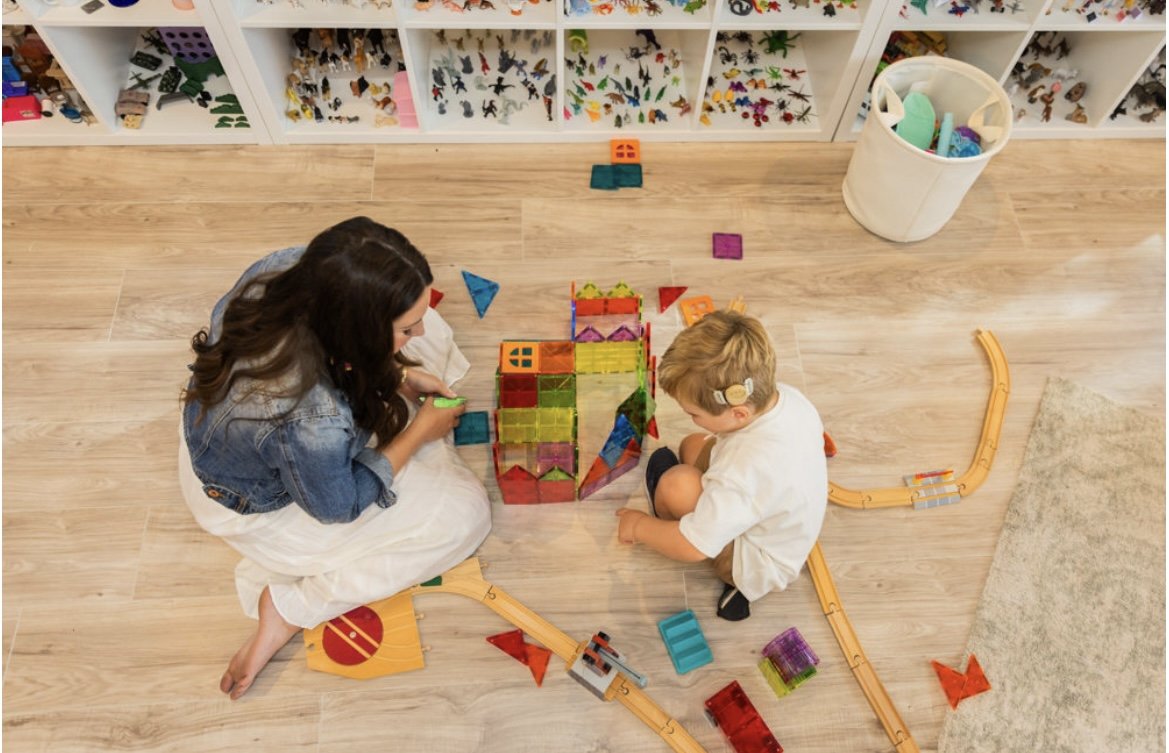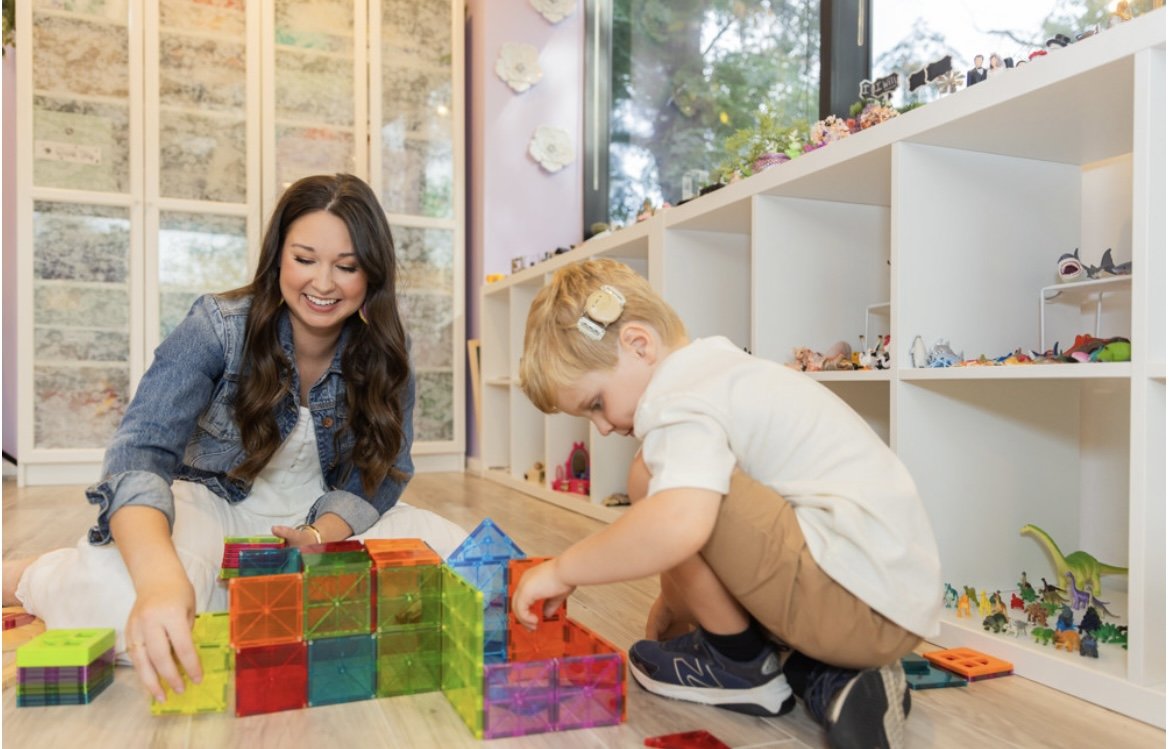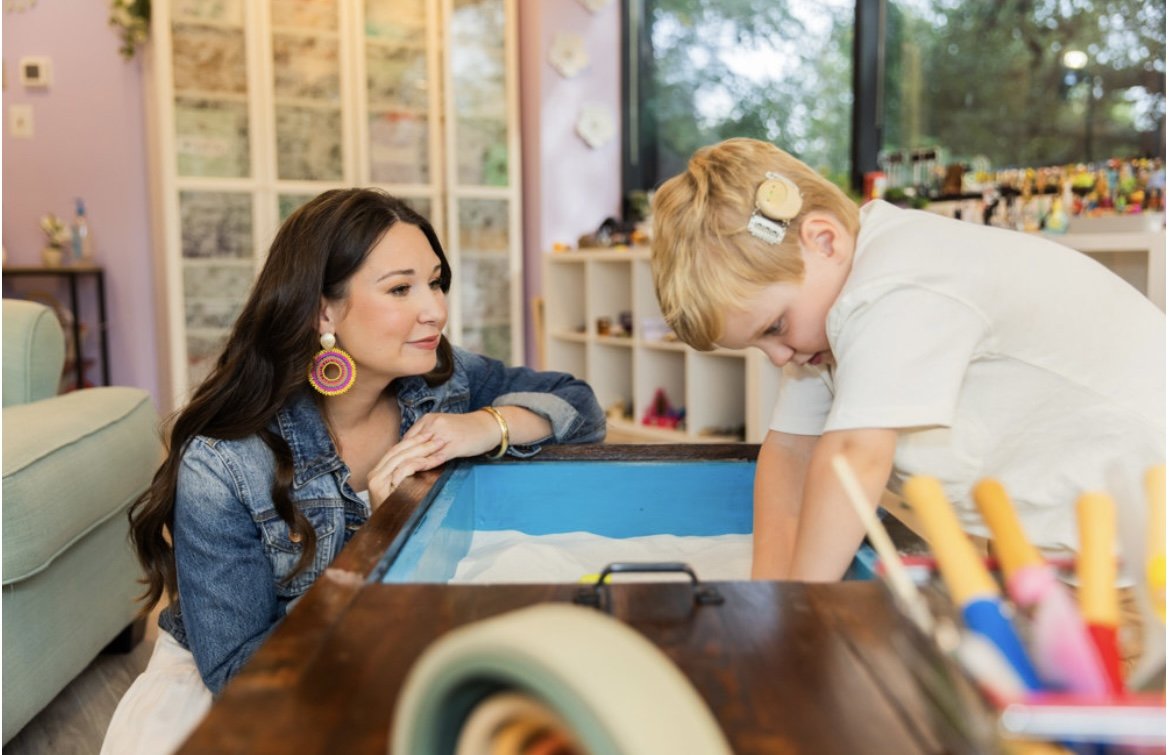
Children
“Enter into children’s play and you will find the place where their minds, hearts, and souls meet.”
Virginia M. Axline
Children & Play Therapy
To some, play therapy may be a newer approach. However, it actually began many years ago with Sigmund Freud! This modality is centuries old & has plenty of research & evidence to support its effectiveness.
It’s clear after years of research that because children’s brains are under extreme development (brains are not fully developed until our mid-20s), they do not possess the ability to verbalize their thoughts & feelings like adults can. Instead, children use their behavior & play to communicate. As a play therapist, I provide a safe, nurturing environment, observe the client’s play, & play with them (if the child invites me to). When a child is provided the time, tools, & opportunity, they will show us what is bothering them. I will act much like a translator with parents/caregivers. Based on what I observe & what is occurring in the child’s home/school, I may make recommendations on things to implement or tweak to assist with treatment.
What are sessions like?
Ages 3-7
Is your child experiencing frequent meltdowns, aggression, potty training issues, lack of flexibility, difficulty with transitions, anxiety, etc.? I highly recommend play therapy! I have found great success utilizing client-centered play therapy with clients struggling with issues such as these.
For clients within this age group play therapy comes very naturally. They thrive in an environment where they receive undivided attention, are offered every opportunity to be in control & express themselves, and feel safe & supported. Activities that this age group typically enjoys in the playroom are dollhouse play, babydoll/caregiver play, art, pretend kitchen play, costumes, & sandtray.
Ages 8 - 12
Is your child experiencing depression, anxiety, angry outbursts, bullying, low confidence, or low frustration tolerance? I highly recommend play therapy! I have found great success utilizing client-centered play therapy with clients struggling with issues such as these.
In this age group, clients typically gravitate towards activities like art, board games, sports, music, and sandtray. For clients of this age group, therapy usually involves more conversation, goal-directed activities, & psychoeducation.
Play Therapy can seem really confusing for parents.
Here are some FAQ’s!
How does it work?
Play therapy for children is the equivalent to talk therapy for adults. You know how you feel better after talking to someone about your problems? Children feel better after playing out their problems. For example, this may look like a 5 year old child playing out their anger or anxiety from having a new sibling enter their world using a babydoll. The client may pretend to be themself, mom, dad sibling, etc. and play out their anger or fear towards the new family member. The client may play this out several times until they have found some sense of safety and resolution. Or, this may look like a 10 year old child playing unfairly during a board game. In this type of play, the child is trying to communicate how they feel like their life is unfair at home or school. Simply communicating this to another person provides relief. Once the therapist knows what it causing the client distress, together the therapist and client can explore ways in which the client can cope in a healthier way.
So… you’re just playing with my kid?
There are multiple facets to being the play therapist. Play therapy can very much sound and look like “just playing”, but it is much more. Rather than expecting the child to rise up to the adult’s level of understanding, the therapist dips down into the child’s level of understanding to then listen, understand, and teach. Play therapy is essentially experiential learning. So, yes, the therapist and child play together, AND while they are playing a lot of learning, healing, and growth is happening.
In Play Therapy your child will learn…
Developing independence & problem-solving skills, boosting self-confidence, accepting responsibility, improving emotional vocabulary, enhancing coping skills & flexibility, regulating emotions, building frustration tolerance, promoting appropriate behavior, fostering healthy communication, increasing empathy for self & others, and enhancing self-control & awareness.


